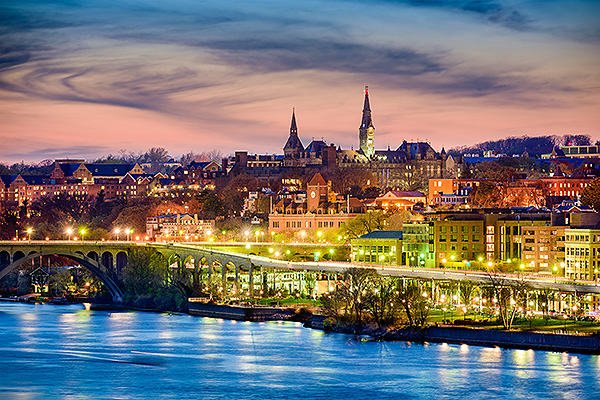
Georgetown University is a prestigious institution located in Washington, D.C. Many prominent politicians and lawmakers (including former President Bill Clinton) are graduates. Founded in 1789, Georgetown once relied heavily on the trade of enslaved workers to finance its operations. Heavily in debt by 1838, the university arranged the sale of 272 slaves to plantations in Louisiana, separating families ripping apart communities.

In the fall of 2015, a demonstration group made up of students and activists staged a sit-in at the office of Georgetown President John DeGioia. The protesters called for an “increased memorialization” of those enslaved by the university. Two months before, the president had formed the Working Group on Slavery, Memory, and Reconciliation, made up of faculty, staff, students and alumni. The fall protest gave the issue a higher profile. The purpose of the working group was to engage in discussions and to make recommendations on the best way for Georgetown to address its historical relationship to the institution of slavery.
This week, btw presents to question to you. Is Georgetown University’s announcement on how to deal with its slavery past an appropriate action?
Yes
- Georgetown’s announcement is in line with (and goes beyond) those of other universities—including Harvard, Columbia, Brown, and the University of Virginia—that have faced similar allegations. After more nearly two centuries of ignoring the significance of this history, direct acknowledgment of Georgetown University’s participation in and benefit from the slave trade will open the door to further discussion and more action. The working group has already created a digital archive dedicated to archival research on the subject.
- President DeGioia is the only university president (of those mentioned above) who has reached out to the descendants of the slaves. In the mean time, Georgetown announced that the University will offer preferential admission to the descendants of the 272 slaves sold to finance the school.
- Some of the recommendations presented by the working group, are significant beginning actions. Some of these include a public apology; the renaming of two campus buildings–from those of two former presidents of the college who were directly involved in the sale of the slaves–to an enslaved person and the founder of a school for black girls; and the development of a public memorial honoring the 272 enslaved workers.
No
- Mere acknowledgment that Georgetown University participated in the slave trade is not sufficient action for this matter. On top of the overall injustice of slavery, conditions of the sale that would have given some benefit to the slaves (promises that families would not be separated, for example) were not met. Some critics are concerned that the university’s recognition will ultimately become little more than an act of public relations and forgotten about in the next news cycle.
- While they were asked to attend the university’s announcement, not one of the descendants of the 272 slaves was asked to be a part of the working group. This is seen as a major oversight and slight by the African-American community, some of whom believe the nation’s racial divisions can be traced back to slavery and its legacy of segregation and inequality.
- Because the sale of the slaves was, in 1787, seen as a financial decision (to save the college from closing), the solution should also be rooted in financial terms. Some have suggested that the amount received for the slaves ($3.3 million when adjusted to today’s dollars) should be put aside into a fund and paid out to the descendants, either directly or through scholarship opportunities
